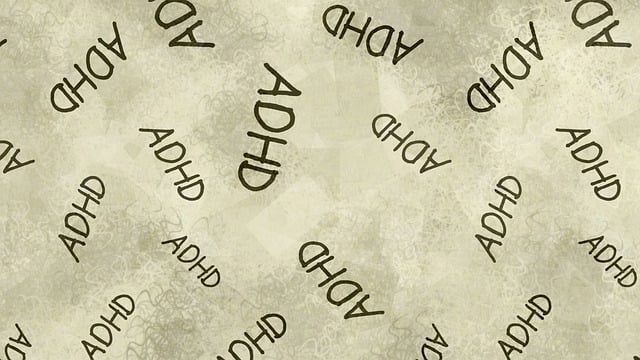Wheat Ridge Blended Families Therapy offers a comprehensive approach to managing mood regulation within complex family structures. By combining evidence-based practices like CBT, mindfulness, and compassion cultivation, this holistic model addresses biological, psychological, and interpersonal factors influencing emotional well-being. Through structured routines, open communication, and support systems, families learn to navigate life's challenges with enhanced resilience, creating a secure environment where everyone can bravely manage emotional storms together.
Mood regulation strategies are essential for maintaining emotional balance, especially within blended families. This article explores various approaches to address mood disruptions in these unique households. We delve into the complexities of understanding mood regulation, highlighting the benefits of Wheat Ridge Blended Families Therapy’s holistic approach. Additionally, we discuss effective cognitive behavioral techniques and the impact of lifestyle adjustments and support systems on fostering stability. Discover practical ways to navigate and manage moods effectively within blended family dynamics.
- Understanding Mood Regulation: Unraveling the Complexities of Emotional Balance
- Wheat Ridge Blended Families Therapy: A Holistic Approach to Addressing Mood Disruptions
- Cognitive Behavioral Techniques for Effective Mood Management
- Lifestyle Adjustments and Support Systems: Nurturing Stability in Blended Families
Understanding Mood Regulation: Unraveling the Complexities of Emotional Balance

Understanding mood regulation is navigating a complex landscape where emotions ebb and flow like waves in a vast ocean. It’s about recognizing that emotional balance isn’t a static state, but rather a dynamic process influenced by a multitude of factors—from our biological makeup and past experiences to current stressors and interpersonal relationships. For families, especially blended ones, this journey can be uniquely challenging due to the intricate web of individual and collective histories, requiring tailored strategies for effective mood regulation.
Wheat Ridge Blended Families Therapy emphasizes that addressing mental health issues through a holistic lens, incorporating elements like Mental Health Policy Analysis and Advocacy, Self-Care Practices, and Compassion Cultivation Practices, can significantly enhance emotional well-being. By fostering open communication, developing coping mechanisms tailored to individual needs, and cultivating empathy within the family unit, blended families can create a nurturing environment where everyone learns to navigate life’s emotional storms with greater resilience.
Wheat Ridge Blended Families Therapy: A Holistic Approach to Addressing Mood Disruptions

Wheat Ridge Blended Families Therapy offers a unique and holistic approach to addressing mood disruptions within families. This therapeutic model recognizes that emotional well-being is deeply intertwined with the dynamics of family relationships. By bringing together both parents and children, the therapy creates a supportive environment where every member can express their feelings, gain insights, and learn effective coping mechanisms.
The program integrates various evidence-based practices, such as mindfulness meditation and compassion cultivation, to foster mental health awareness and resilience. Through these techniques, families develop enhanced emotional intelligence, allowing them to navigate challenges more constructively. By promoting open communication and understanding, Wheat Ridge Blended Families Therapy aims to strengthen family bonds, ultimately leading to improved mood regulation for all involved.
Cognitive Behavioral Techniques for Effective Mood Management

Cognitive Behavioral Techniques (CBT) offer powerful tools for managing and regulating moods effectively. This evidence-based approach has proven successful in various settings, including Wheat Ridge Blended Families Therapy, where therapists guide individuals and families through identifying negative thought patterns and replacing them with more positive and realistic ones. By challenging distorted beliefs and cognitive missteps, CBT enables people to gain a better understanding of their emotions and behaviors, leading to improved mood stability.
Through structured conversations and practical exercises, CBT empowers clients to develop coping skills for stress management, enhance their problem-solving abilities, and boost confidence. This process allows them to navigate challenging situations with resilience and adaptability. For blended families, where complex dynamics may impact individual moods, CBT can facilitate open communication, improve conflict resolution, and foster a more harmonious home environment. Thus, incorporating cognitive behavioral techniques as part of a comprehensive mental health policy analysis and advocacy strategy can significantly contribute to the well-being of family members, promoting healthier coping skills development within these unique households.
Lifestyle Adjustments and Support Systems: Nurturing Stability in Blended Families

In the context of Wheat Ridge blended families therapy, addressing mood regulation is a multifaceted endeavor that begins with lifestyle adjustments. Blended families often navigate complex emotional dynamics, and implementing consistent routines can significantly enhance stability. Simple yet powerful strategies include establishing structured bedtimes and mealtimes, encouraging regular physical activity, and fostering open communication channels. These practices promote a sense of predictability and security, which are cornerstones for nurturing emotional well-being within the family unit.
Support systems play a crucial role in depression prevention and stress reduction methods for Wheat Ridge blended families. Building a network of understanding and compassionate individuals can provide much-needed respite from the unique challenges faced by these families. Encouraging parents to seek counseling, join support groups, or engage in community activities that prioritize emotional intelligence can help them develop effective coping mechanisms. By integrating these practices into their daily lives, blended family members can enhance their resilience and foster a more positive home environment.
In navigating the complexities of mood regulation, especially within blended families, a multifaceted approach proves essential. While understanding emotional balance and identifying triggers are foundational, integrating therapeutic techniques like Wheat Ridge Blended Families Therapy offers a holistic solution. Combining cognitive behavioral methods with lifestyle adjustments and robust support systems, this comprehensive strategy empowers families to manage moods effectively, fostering stability and enhancing overall well-being.














